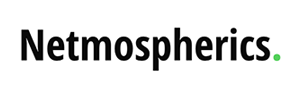
Expert Roundup - SEO Heading Into 2018
Let me ask you a question... Are you reactive or proactive with your SEO strategy?
I'd take a bet that it's a little of both depending on the situation.
As we take the lead coming into Q4 of 2017, I rounded up some SEO experts and asked them about their thoughts on ranking for Christmas, SEO in 2018, and the hottest ranking strategy impacting websites right now.
Below are the answers they gave me, so let's dive in.
How Do You See Ranking In Google For 2018 Changing?
Marc @ Fimadigital: I still believe that the core of everything when it comes to ranking is links.
No matter what people tell you, strong links are what make you rank in competitive marketplaces. But, for 2017 so far I've noticed that links seem to be taking far longer to kick in and make a difference. But that doesn't mean you should stop link-building. It's still the core metric when it comes to ranking in Google so keep working on it.
2018 will probably see a greater use of Google's AI Technology to rank websites. Go look at some of the information behind Google's acquisition of the DeepMind company to see what might be in the pipeline... the potential is insane as to what Google's machines will be able to do in the future.
From a simplistic perspective, you have to start considering that Google is going to be able to mimic more and more what a human user can do.
For me, that points a lot towards user-experience. So, get more of a focus on that with your websites, and learn how users interact with your website and how you can improve that.
Google wants to offer quality results, so there's no doubt in my mind that user experience is going to become even more important, especially if they can start to mimic that more closely to how a human would.
Turbin3: I have 2 primary thoughts on the state of Google rankings, for 2018 and beyond:
Machine Learning aka SkyNet
The digital judgment day is upon us, obliterating our digital properties from the face of the SERPs as programmatically-identified threats to quality. Okay, things aren't quite that bad, but they seem to be moving that direction.
Google's use of supervised machine learning, to improve the SERPs, is no real secret. It's the foundation behind those periodic algorithm updates everyone freaks out about. Use of ML, to improve search engines and databases, is a decades old concept. What we have to remember is, we're not talking about a "black box" here. At their core, these things are just programs written in programming languages, and are still subject to the restrictions and inherent flaws of those languages.
What many may not have realized is the ever-shrinking time interval between these updates. In fact, many are now real time or very close to it. Basically, where this is leading is relatively unsupervised machine learning that is manipulating the algorithm in near real-time. Really think about that. You with your Excel sheets, planning things out, speculating.....while a highly advanced set of programs is directly competing against you, backed by massive computing resources. Very quickly, it can turn into what we call in computer science an O(log N) problem.
On the machine learning side, where I see things going with Google over the next year is greater incorporation of programmatic and near real time updates to an increasing number of algorithms. Note that this also includes algorithms Google has specifically designed to obfuscate your ability to achieve attribution of your efforts based on ranking changes...
What this means for the average SEO is, it's becoming increasingly important to approach your marketing efforts more like legitimate businesses. I said "average SEO's" for a reason. There's nothing wrong with being an average SEO. The thing is, to compete on the more aggressive side of the industry increasingly takes a significant degree of focus, certain behavioral traits that are uncommon, and certain technical skills the average marketer may not have and may take them a long time to acquire. In those cases, focusing on due diligence of fundamental marketing efforts for a legitimate business offers less cognitive overhead to deal with, and can make for better productivity with the average marketer.
Make no mistake, SEO is not "dead" and never will be. Search engines are programs, and programs can ALWAYS be manipulated. The trick is achieving this effectively, in a timely manner that isn't a negative ROI effort for you.
The Liberation of Learning to Program
As we've learned from Albert Einstein, we cannot solve problems from the same level of thinking that created them. Thus, we must elevate our consciousness to the next level so we can transcend these barriers. Programming is a next level maneuver when applied properly to marketing efforts.
In my opinion, it is becoming increasingly important for marketers to learn at least some minimal form of programming language, to remain competitive. Maybe it's PHP if you mostly deal with Wordpress. Maybe it's Python if you frequently deal with data manipulation, scraping and automated site testing, etc. Maybe it's as simple as learning a small amount of regular expression syntax (regex) and learning how to apply it in a more advanced text editor like Sublime Text or the Atom editor.
Either way, things are becoming more "machine" oriented. The more you can find ways to automate the boring and time consuming stuff, you'll save time, increase ROI, and be able to better scale your marketing efforts. Regex and an advanced text editor is probably one of the lowest barriers to entry, and offers some nice gains that will save you TONS of time over the manual Excel insanity.

Turbin3 is an experienced SEO and web developer that has been in the industry on the agency, client, enterprise client, and freelance sides for about 10 years.
He's been a small business owner and also has experience ranking for 1 word, high traffic keywords in highly competitive niches.
His specialty includes a focus on large sites and technical optimization.
Vince @ Netmospherics: The fundamentals of ranking a website are not changing, the overall industry is simply maturing and changing:
- Large companies are gobbling up smaller sites, rolling them into their networks, and dominating SERPs. (good link: http://www.viperchill.com/google-control/)
- Affiliate sites with huge budgets behind them are producing content on a high level of quality, at scale.
- eCommerce searches are increasingly originating at Amazon.
- Entertainment attention is shifting even more to social platforms. People are often being fed entertainment rather than having to search it out.
- Podcasting and video are booming.
As an SEO this creates a new set of rules on what is possible and what is realistic.
Quality over quantity:
Advanced content types including written, audio, video and interactive are key to driving engagement and usage metrics up. These are key ranking factors. You can take this to the next level and even create entire website sections or databases that support your niche or industry.
These can be huge link magnets that establish your brand and bring repeat visitors.
Create content on multiple platforms:
And funnel them into your website. Create content on the social platforms where your target audience's attention is and drive them back to your website. This boosts your branding and in turn your SEO presence.
Create community on-site:
Today we rely so heavily on platforms to do the community management for us. We put the control of our audience and our message delivery in someone else's hands.
Work to create community on your site. Depending on your project this could be as simple as pushing harder for article comments, or something as intensive as a forum. Be part of it, drive it, lead it.
The site usage metrics, repeat visitors, natural links, and user generated content all helps rank new terms, boost overall SEO, and improves user metrics.
The key is to think about providing value and nourishing community NOT pushing for sales or conversions. Nobody wants to be part of a community just to feel like a pawn.
Stephen @ StephenSumner: With the rise of things like Google Home, Amazon Alexa and Siri users are starting to search the web differently, this means a different approach to SEO will be needed as we move forward. Content is going to be the one area where focus will be needed because these new search tools don't generally show a list of results in the traditional way, they just show what they consider is the best. If you are going to be featured as the best you need the best content.
Google seems to be making some good improvements to their local search product and I think we will see a lot of SEO's start to perk their interest in this again as it can quite often be a quick win if you know what you are doing!

Stephen Sumner has been working in the SEO industry since 1999 on a wide variety of roles from working in leading UK agencies to most recently working as the SEO lead in Scandinavia's largest start-up.
Today Stephen is a consultant working with his own portfolio of clients focusing on growth through various online channels including paid search.
Ryuzaki @ BuilderSociety: I believe we'll continue to see a 'redistribution of search volume' due to progress being made in big data collection, trading, and processing. This will lead to increasingly personalized search results, not only based on location, but on short-term and long-term search histories along with correlations with user metrics, whether those be your own or people similar to you. User personas will be a huge deal with full scale voice surveillance, product recognition in the backgrounds of your social media pictures, eye-tracking, etc.
Beyond personalization, we'll see Google continue to cannibalize SERP space for more methods to advertise or keep you within their network of sites that then advertise to you. All of these carousels, knowledge graphs, Hummingbird snippets and structured data is the beginning.
For these reasons, the competition will be fierce and be fighting over even less food left on the table. To make matters worse, 'Old Money' is finally catching on to the value of SEO. Like we see in every industry, we're going to experience a vast consolidation of properties and networks of sites into unfathomable powerhouses that dominate the SERPs. The barrier to entry is not only going to get higher still, but there will begin to be ceilings on the possibilities for most of us without the resources and connections that the old giants will be exploiting.
Emanuel @ Dsector: For the most part, SEO in 2018 won't be much different than in 2017. An even larger emphasis will be placed on content, SSL certificates and responsive websites (mobile friendly). The latter two will most likely become a requirement. The phrase "Content is king" has been used a lot in the last few years to stress the importance of good quality content, but content is not actually king. Sharing the content is king. Just because a website has great content on it, this won't help its SERPs (search engine results page) at all, if people are not sharing the content. This will become extremely important in 2018. Website owners need to make sure that their content actually gets shared otherwise it's almost useless.
For Local SEO, positive reviews, social shares, very relevant backlinks, a fast loading website with plenty of traffic and great on-page optimizations will almost always guarantee you a top 3 spot in 2017 since most competitors have little to no clue about SEO. In 2018, more companies will pay for SEO services which will make it more difficult to rank your business' website high. This varies greatly based on the industry. Once you're in the top, it's much easier to stay there so get there before everyone else catches on.
The competition is so high in certain industries that it might not even be worth it to try SEO. Rather than spending $20,000 for 12 months of SEO (yes, it can take that long in some cases), you might be better off using that money in paid ads or other forms of advertising. You can use the Google Keyword planner to get the approximate monthly search volume for your keywords and then simply do the math. About a third of people will click on the first Google search result that pops up and 20% on the 2nd search result. If your keyword gets 1000 monthly searches and you manage to rank 1st for it, this means you will get approximately 330 visits a month from that keyword alone. You will need to play with the numbers and see if it's worth investing in SEO for your particular case.
Here is a condensed list on what you should focus on when doing SEO in 2018:
- Keyword research - relevancy is key here. Your goal isn't to drive as much traffic to your site as possible and end up with a high bounce rate (rate of people leaving your site as soon as they get to it), but rather to drive RELEVANT traffic to your site. Don't be afraid to "steal" your competitor's keywords if needed.
- Great content + plenty of shares - make it extremely easy for people to share your content and build a social following on Facebook, Instagram or whatever platform best suits your business.
- On-page SEO - much can be said about this and there are many tricks to keep in mind. Keep a keyword density of about 3%, use your keyword at the beginning of your H1 tag, try to optimize each page for only one specific keyword, fast loading website, SSL certificates and constant content updates are only a few of the aspects to keep in mind for on-page SEO. There is such a thing as over-optimization, which can hurt your rankings, so don't overdue it.
- Good quality (not quantity) backlinks - there are services which offer dozens of backlinks for $5. Stay away from them since they will end up hurting your rankings. Instead, try to get relevant backlinks on websites with a high page rank.
There are many other factors but for the sake of keeping things simple, I am sticking to the most important ones.
Chad @ Chaddo: Since my main focus is google maps, I usually think about future changes as regards my maps leads.
One big change that is rapidly approaching: we will see organic maps listings pushed down by paid ads. If you are setting up black-hat style listings (with no actual physical address), this means you will need to start creating large numbers of listings in smaller towns that paid advertisers won't target. Many people are freaking out about this change in the maps space, but they forget that in order to have paid ads showing up in the map, you need a maps listing that is located in the same area as the searcher. This means we will still be able to complete using free maps listings in smaller towns for a long time.
Big time paid advertisers will focus on larger cities with big populations. It is also time to start refining your marketing process so your ROI supports paid advertising. Do it now so you won't get swept away by the changeover to paid ads in google maps.
I also see the Local Guides program continuing to become more robust.
Local Guides is basically google's new version of Mapmaker, where maps users can suggest improvements to google maps. The more successful changes you have made to google maps, the more authority you have.
The more authority you have, the more quickly your edits will be approved. They might not even be moderated at all, depending on the authority of your Local Guides account.
Whether you do client work, or have your own listings generating phone calls and website traffic to your business, you need a Local Guides account with a lot of authority in your back pocket. It will be more and more useful in 2018 to be able to setup listings and dominate your target market (or help your clients dominate) on google maps.
What Can Marketers Do Now To Start Ranking For Christmas?
Marc @ Fimadigital: It might be too late to make massive ranking differences before Christmas as people will often start the buying process month's in advance, unless of course client's want to focus on Christmas related searches such as "The Best Christmas Present Ideas for XXXXX" - but I guess that's obvious.
What instead I would focus on is making sure that you don't lose any potential sales once the visitor is already on your website.
So with that in mind and Christmas being the biggest time in terms of online sales, I would get eCommerce websites to really focus on reputation management SEO and brand name SEO.
As an example, let's say a customer visits your website to make a purchase. Part of the buying process will involve social proof and reviews. I work with so many clients who have no Google reviews, no Facebook reviews, no third party testimonials, or mentions on other website putting them in a positive light.
Luckily for many brands, it a very quick and easy process to get this type of social proof into Google, and getting it ranking well.
For example, it takes no time at all to generate Google and Facebook reviews, whether that's initially just via partners, friends, and suppliers, and then moving onto incentivizing existing customers to leave something positive online.
Then I'd move into content-based brand searches. As an example, let's say you're website is called "Brandon Grohl Truck Accessories", I'd reach out to trusted customers who have blogs themselves and see if you can incentivise them to create a blog post on their own website around searches such as "Brandon Grohl Truck Accessories Testimonial & Review" - because this stuff is probably going to rank quickly and easily... with the end game being you have social proof online that you are legitimate and trusted - with the result hopefully more conversions/sales from that Christmas purchaser.
Turbin3: Christmas? You should already have outreach campaigns fired up and ready to go. You're almost out of time.
So how early is too early? Well for the popular, London-based retailer John Lewis, only a couple WEEKS into January 2017 certainly wasn't too early to get started planting those seeds. (https://www.marketingweek.com/2017/01/12/john-lewis-suggests-christmas-ad-is-no-longer-as-groundbreaking/) Maybe that's not a perfect example, with a nice, shiny, anchor text link, but you get the idea.
You have next to no time left to get your content up, so get it built now and published or your publishing schedule set, so you can move immediately into a heavy focus on off-site engagement. If the focus is ranking, specifically, start thinking about "planting seeds" as early as possible (like tomorrow) so you can start acquiring links.
Get creative. Don't feel like it even all has to be positive. If a "confession" or "public disclosure" of something (lackluster sales of a product/product line last Christmas, shifts in trends, etc.) is what entices an editor to give you the quote, link, mention, etc. then maybe that's what you need to do. The sites you need links from need controversy to sell their users. They need trusted sources to backup and bolster their existing or planned content. They need collaborators to help scale their own content creation efforts. They need the same things you need, in which case you can leverage to both yours and their advantage.
Vince @ Netmospherics: This is a very open ended question that's going to depend on the project you're working on. My best general advice that applies in every case is simple - be practical and double down on what's working.
It's nearly October while I write this. That means you have less than two months to push rankings up for your target terms before the shopping rush starts.
With that short of a timeline, I wouldn't be doing any experimenting.
I'd focus on improving rankings for existing keywords or ranking terms I feel confident I can tackle immediately. I'd be relying on the tried and true methods that have been working for the project I'm involved with and just scale them as hard as I could.
Stephen @ StephenSumner: Start planning properly for Christmas 2018 (joke) but there is not long left for this year, so I'd be focused on platforms where the results can be had quickly such as Instagram ads, Adwords etc.
On the organic side, I'd be looking to see if I had any content already ranking and then start to freshen that up as quickly as possible.
Ryuzaki @ BuilderSociety: Frankly, if you want to rank new pages for high-value terms by Christmas, you should have started in January.
I don't say that to be defeatist.
Time is an integral part of the search algorithm now, not only on the page-level but on the domain-level. With enough domain-level age and 'authority' you can bypass some page-level waiting, but you never know when your efforts will be artificially dampened. We've all experienced the scenarios where two pages that should rank #1 upon publishing do two different things. One slams right into the top position and the other indexes around #60 and slowly slides its way to #1 over the course of 5 months. You need to be anticipating and compensating for these events.
But to keep this grounded and actionable in the moment, I'd recommend finding long-tail keywords with low competition to attack for the time being, especially if your domain isn't ridiculously powerful.
It's a gamble if you want to go for shorter tails, but a head start for the next Christmas. Look for longer tailed variations of the terms you'd like to eventually tackle so you can get a piece of the pie this holiday season.
Although people recommend search operators like 'allintitle:' to get an idea of the overall field of competition, nothing matters but the top 10 spots and you could even argue that the top 5 are all that matters, especially for lower volume terms. You need to find a way to quickly analyze the ranking pages in the top 10 in terms of off-page and on-page SEO to get a real idea.
If you have the resources to spray and pray, then you can pump out content for tons of terms based on some aggregator's competition metric. But if your time and resources are limited, you need to decrease your risk by doing better SERP analysis. I know two great ways to get that done in the blink of an eye and one of them is SERPWoo.
Emanuel @ Dsector: Invest in paid advertising (AdWords or Facebook ads). You can't expect to start ranking in the top 3 on Google in such a short time interval, unless you are going after some long tail keywords or if you're in a less competitive niche. Most SEO shortcuts fall into the black hat / grey hat areas and are not recommended unless you're looking for a hit and run business model. For fast results, stick with paid advertising and forget about SEO.
Chad @ Chaddo: In the maps space, marketers need to work fast to get their listings up NOW! It takes an average of 2 weeks for a new listing to pop into the map, and sometimes longer to rank if you are in a competitive market. It can easily be done by the Christmas shopping season but you need to start now! Even if you are in a market where your maps listings get spamflagged quickly, it will be worth it to get those listings up during the Christmas rush, even if they are only up for a short time.
What's The Hottest Ranking Technique Working Right Now?
Marc @ Fimadigital: Do you mind if I flip this question a little bit? As SEO's we talk about rankings like they are the Holy Grail of everything we do. But from a client's perspective they just want more business.
With my clients at the moment we're rolling out schema mark-up data across their websites in order to pull the review stars into their organic search engine listings. The difference that this is making in click through rates (CTR) for our clients is really noticeable.
As a visual indicator, having those stars display in the rankings is making massive differences in how many customers click the results. And in terms of traffic for let's a position 3 search result, and the traffic it used to receive, the differences are really marked.
I'd recommend doing this, no matter what niche your website is in. There are various Wordpress plugins or standalone code you can use, and it is possible to offer a degree of manipulation to the star ratings. I'll let your readers look into that aspect though.
But coming back around to the initial question, CTR is a ranking indicator... so it stands to reason that if you can get your position 3 result clicked more often than Google would expect (with the help of schema mark-up), then the rankings could also follow.
Finally, I've talked about eCommerce quite a lot so far, so here's just one little link-building tip your readers might find useful if they work on shopping websites.
One thing that all the major retailers online have in common is that they are listed on discount code and coupon code websites. Many of these coupon code websites will link to the retailer website, providing a relevant and highly authoritative back-link to you.
Having back-links from discount code websites to an eCommerce store is a fantastic and natural looking back-link in Google's eyes - make sense right?
So how do you get them - simple. Create a discount code on your store, let's say it's DECEMBER10. What you will then do is Google "coupon code websites" or "discount code websites" and go submitting this coupon code to them. Many of them will give you the opportunity to place your store URL in there giving you that natural back-link, in a very similar fashion to what Google would expect from a traditional online retailer.
Something else to consider with this strategy is that many of the coupon code websites spider the web looking for discount codes to automatically place on their websites. So it's worth creating a coupon code every month, and writing a blog post about it on your store. The discount code websites will spider the web, find the blog post, and then place that code (and your link hopefully) on their website.
Just as an aside, discount codes also massively help with shopping cart conversions so more reasons to use other than just for SEO.
Turbin3: As far as most effective current SEO techniques I've seen lately:
Small Sites:
Depth of content. I see too many sites fail at this. It's easy to get lost in your posting schedule, running out of ideas, grasping at straws on topics to write about.
Inevitably, the result is often that the site may cover a wide variety of topics, though merely at a surface level. Ask yourself, what's the average number of posts I have for a given topic or category/tag? If it's 1 or 2, you have a lot of work to do.
Depending on the niche, you may need dozens or more. Stuff to consider: If too few, should I consolidate to the next level up (short tail, parent category/tag, etc.)?
How many related keyword topics are there in this category, that I can use for content ideas?
For low numbers of related keywords, you may want to aggregate your lower level content to more of a "pillar" page on the short tail subject, so instead of thin lower-level pages, you can build a much stronger higher-level page.
Ultimately, if you gauge this as an issue for your site start thinking about focusing on drilling down into subjects, even if it means letting other ones slide a bit in the meantime. Build deep, then expand out.
Medium to Large Sites:
One of the most effective SEO techniques I currently see working well is organization and structuring of on-site content to create clear themes. In essence, content siloing. It's nothing new, of course.
What currently appears to be the thing with themes is determining when you have enough coverage of a subject or vertical to the point where its continued presence risks diluting or confusing the current domain or subdomain themes.
Some options might be to break content into subdomains separated by major themes.
In other cases, separate domains for major themes might make sense. There are many recent examples, including highly successful brands, actually giving those themed separate domains their own individual brands and using them as SEO deathstars to boost all of their other domain properties.
The moral of the story is, don't be afraid to shake things up, do a migration or two, and segment things out. Just determine what themes actually make sense for the given site, and whether to reduce, aggregate, repurpose or otherwise move off-theme content to a more appropriate place.
Vince @ Netmospherics: Be First: The more ahead of a trend you can be, the better. Keep your finger on the pulse of your industry. If you can create content and rank for terms you know will pop later, you can dominate. A simple Google Alerts subscription can go a long way.
I.E. if you can get word of an upcoming product or service and create content pre-launch, competition will be low. You can rank early and catch all the traffic when the product drops. These moves tend to last long term in the SERP's too.
Complete Topic Coverage:
If I am trying to rank for a specific term, I look at the term's place in the purchase or action funnel. Then I brainstorm and do keyword research to build content topics that support the entire funnel. By creating all this supporting content that is on-topic and properly interlinking down to the next logical step, I create a relevant content net that helps rank the main keyword(s) and captures a wider audience in the process.
Create Multiple Content Types:
It's a simple concept that just requires hard work. Create audio, visual, and written content around the topic. Host the different media types on the appropriate platforms and link back to your site. Use all these works in the content on-site to improve user interaction. All this creates even more relevancy and supports your main term rankings.
Stephen @ StephenSumner: Outside of landing really nice backlinks, the technique that I'm enjoying a lot is the use of LSI search terms in landing pages. I tend to use http://lsigraph.com/ and also the related searches box at the foot of Googles SERPs to incorporate variants of the main target keywords into the copy on landing pages and blogs etc
The other thing I have been ruthless about with my clients is PageSpeed and getting this as fast as possible, one client and I spent nearly a year on a PageSpeed project for his long-established site and within months of us deploying the new code we were getting #1 rankings in Google on a weekly basis and the users are now also enjoying the site a whole load more!
Ryuzaki @ BuilderSociety: In the old days, a principled SEO wouldn't reveal such a trick, because it would then be exploited and patched up.
Unfortunately for your readers I haven't kept up with that world of spamming and finding windows of opportunity, largely because Google has done an incredible job closing windows and creating moving targets.
It's no longer worth pursuing for most of us, who'd prefer a longer term asset than the classic churning and burning between updates. And if you've been paying attention, we're seeing what are nearly weekly updates now. It's pretty close to 'real time' now.
To stick within my real of expertise, I'll give two tips that can safely be discussed because neither are against the guidelines of Google and neither can be done quickly and easily.
That's your best hurdle in internet marketing. If something takes effort, you can bet most people won't pursue it.
The first tip is for time-sensitive rankings. You'll have heard of methods like this for link acquisition like 'news jacking.' But it doesn't have to be news based, it just has to draw a lot of attention fast. We're talking about links and social signals.
If you can gain ubiquitous exposure across the internet that lasts for 24 hours or so, you will rank without question. So getting your marketing chops together to create the splash and knowing how and where to seed your content is the lynchpin in this process.
Then you need to know how to help amplify the signal as much as possible during the ordeal. We talk a lot about this on the Builder Society (BuSo) forum, especially under the umbrella of CCarter's Traffic Leaks concept, if you want to dig deep into the tactic. This is also the absolutely best way to pursue SEO as well.
The second tip is for time-insensitive rankings where the query doesn't deserve freshness.
If you read BuSo, you're likely tired of reading me say this, but it's as true today as the first time I said it. You don't need to build a risky PBN that will inevitably come crashing down and take your site with it.
Treat the entire internet as your PBN and you don't have to worry about footprints and hosting fees and domain registrations costs. And what I mean by this is to become a marketer.
SEO is not something you should be, it is a tool that you should be using as an internet marketer. Many SEO's have come to realize the truth of this and are currently ruining a decent method of pulling this off, which is outreach. But outreach is the end result of a natural process that SEO's aren't going through.
There are a whole lot of relationships to be nurtured, branding to be performed and impressed upon the minds of the people, and other bases to be covered before outreach is remotely worth your time. All of these practices that I'm alluding to ultimately will lead to you receiving natural, contextual links on great websites that cost you nothing.
If you take care of everything else, you don't even need outreach to obtain these links. They happen out of sheer exposure and respect for your operation. And that's how you earn big rankings that stick. You have to stop thinking like a get-rich-quick schemer and like a business owner and elite marketer. Sprinkle in perfect on-page SEO and the rest takes care of itself.
Emanuel @ Dsector: When it comes to SEO, if you only use one technique, you have no chance. There are hundreds of factors which can affect your rankings so focusing on one would be a waste of time. If I had to pick one which I consider more important than all the others, it would be well written, relevant and optimized content and then sharing that content with others. This way you will also get backlinks and relevant traffic to your site.
Chad @ Chaddo: Regarding maps, one of the best black hat ranking techniques is looking for geographic areas where there are a lot of searches, but the competition is not well optimized.
Then, setup your own maps listing in that area. We use twilio + an openVBX installation so we can set new phone numbers up quickly and route them wherever we want, or have them go straight to voicemail.
Make sure the listing has a local area code and make sure the streetview looks like the business could actually be there. Don't setup a business too close to the other ranking businesses (especially not on the same block!) or they could get filtered out by the Possum Algorithm and not show at all on the map.
Your goal is to get ranked in the top 3, so you will show up in the map in organic search (aka the "local pack") as well as ranking high in maps app searches and desktop map searches.
With some minor optimization, you can start getting phone calls and traffic within a couple weeks. There are more opportunities like this than most people realize. One of the telltale signs of under-optimized competition is if you see businesses ranking in the top 3 in google maps that have no website.
Since website authority is a major ranking factor for google maps, if the ranking businesses have no website, you can almost guarantee you can clean up with very little effort with a simple website and some basic maps optimization.
Wrapping Up This Roundup
Just wow.
I've even learned a few things myself today with this expert roundup for heading into 2018. Especially in the maps department.
It might be too late to start ranking for Christmas 2017, but you can get a jump start this week for Christmas 2018 using a lot of the advice from our panel of experts.
So what do you all think about our first expert roundup? What questions do you have for future expert series such as this?
Leave your comments and questions below and we will build a new roundup based on your feedback.




